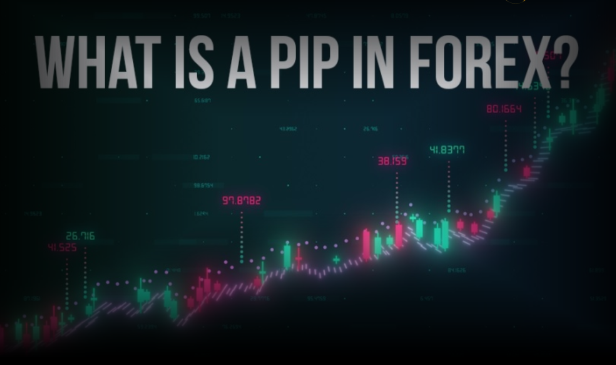What is Pips in Forex Trading? A Beginner’s Guide by Market Nexus
Understanding the language of forex trading is essential to succeed in the market—and one of the most basic yet crucial terms every trader must know is “pips.” At Market Nexus, we ensure that both beginner and advanced traders grasp the foundation of forex mechanics to make informed decisions. In this blog, we’ll explore what a pip is, how to calculate pip values, and why this tiny unit plays such a major role in your trading journey.

A pip, or “price interest point,” is the smallest unit of movement in the exchange rate of a currency pair in forex trading. Most commonly, one pip equals 0.0001, or one-hundredth of 1% (1/100 of 0.01%), for currency pairs that are quoted to four decimal places.
In simple terms, if EUR/USD moves from 1.1000 to 1.1001, it has moved one pip
At Market Nexus, we emphasize precision, education, and risk-managed trading. Understanding pips is central to all three. Pips help traders:
-
Measure price movements
-
Calculate spreads
-
Define stop-loss and take-profit levels
-
Analyze potential gains or losses
Having a strong grip on pip value allows you to make better trade decisions and control your risk exposure more effectively.
How Are Pips Quoted in Forex?
Most currency pairs are quoted to four decimal places, where the pip is the fourth digit after the decimal.
Example: EUR/USD = 1.1234 → Pip is “4”
However, currency pairs involving the Japanese yen (JPY) are quoted to two decimal places. In these cases, the pip is the second digit after the decimal.
Example: USD/JPY = 110.25 → Pip is “5”
Pip vs Pipette: What’s the Difference?
You may also encounter the term pipette, which is one-tenth of a pip:
For most pairs: 0.00001
For yen pairs: 0.001
While pips reflect whole-number changes, pipettes offer more precision in pricing.
| Term | Decimal Place | Value |
|---|---|---|
| Pip | 4th decimal | 0.0001 |
| Pipette | 5th decimal | 0.00001 |
How to Calculate the Value of a Pip
The value of a pip depends on:
The currency pair
The current exchange rate
Your trade size (lot size)
Let’s break it down:
1. When USD is the Quote Currency (EUR/USD)
If you’re trading 10,000 units (mini lot) of EUR/USD:
Pip Value = 10,000 × 0.0001 = $1
So, if the pair moves by 10 pips, you gain or lose $10, depending on your position direction.
2. When USD is the Base Currency (USD/CAD)
Formula:
Pip Value = (0.0001 ÷ Exchange Rate) × Trade Size
Example:
Standard lot = 100,000 units
Exchange rate = 1.2829
Pip Value = (0.0001 ÷ 1.2829) × 100,000 = $7.79
3. Japanese Yen (JPY) Pairs
Since JPY pairs are quoted with 2 decimals:
Formula:
Pip Value = (0.01 ÷ Exchange Rate) × Trade Size
Example:
EUR/JPY at 132.62, trade size = 100,000
Pip Value = (0.01 ÷ 132.62) × 100,000 = $7.54
Pips in Action: A Real Trading Example
Let’s say you buy EUR/USD at 1.1000 and close at 1.1030.
Movement = 30 pips
Trade size = 100,000 units (standard lot)
Profit = 30 × $10 = $300
Or, if you buy USD/JPY at 112.06 and sell at 112.01.
Movement = 5 pips
Pip value = $9.00
Profit = 5 × $9 = $45
Even small movements in pips can lead to significant outcomes based on your trade volume.
What Is the Spread in Forex and How Is It Measured in Pips?
The spread is the difference between the bid price (buyers) and the ask price (sellers).
Example:
EUR/USD Bid: 1.1051
EUR/USD Ask: 1.1053
Spread = 0.0002 = 2 pips
At Market Nexus, we help our clients identify currency pairs with low spreads to reduce trading costs and improve efficiency.
How Do Pips Influence Profitability?
Your trading results—gains or losses—are measured in pips. Regardless of your strategy—day trading, swing trading, or using our expert support—pips determine the outcome.
Examples:
-
10-pip gain on a $100,000 trade = $100 profit
-
25-pip loss on a $50,000 trade = $125 loss
A deep understanding of pips allows you to position your trades wisely and scale your risk effectively.
When Pips Lose Relevance: A Historical Note
In cases of extreme inflation, pip-based pricing loses effectiveness.
-
Germany (1923): 1 USD = 4.2 trillion marks
-
Turkey (2001): 1 USD = 1.6 million lira
These historical examples show how unstable economies can distort standard pip valuations—but such cases are rare.
Final Thoughts: Why Pips Matter at Market Nexus
Understanding what a pip is and how to calculate its value is a foundational skill in forex trading. Whether you’re managing trades independently or supported by our trading professionals, this knowledge helps you:
Evaluate trade outcomes
Define your position size
Manage risk efficiently
At Market Nexus, we go beyond signals. We offer education, expert insight, and trading support—helping you trade with clarity, confidence, and control.
Empower your trading. Understand the pips. Master the market.
